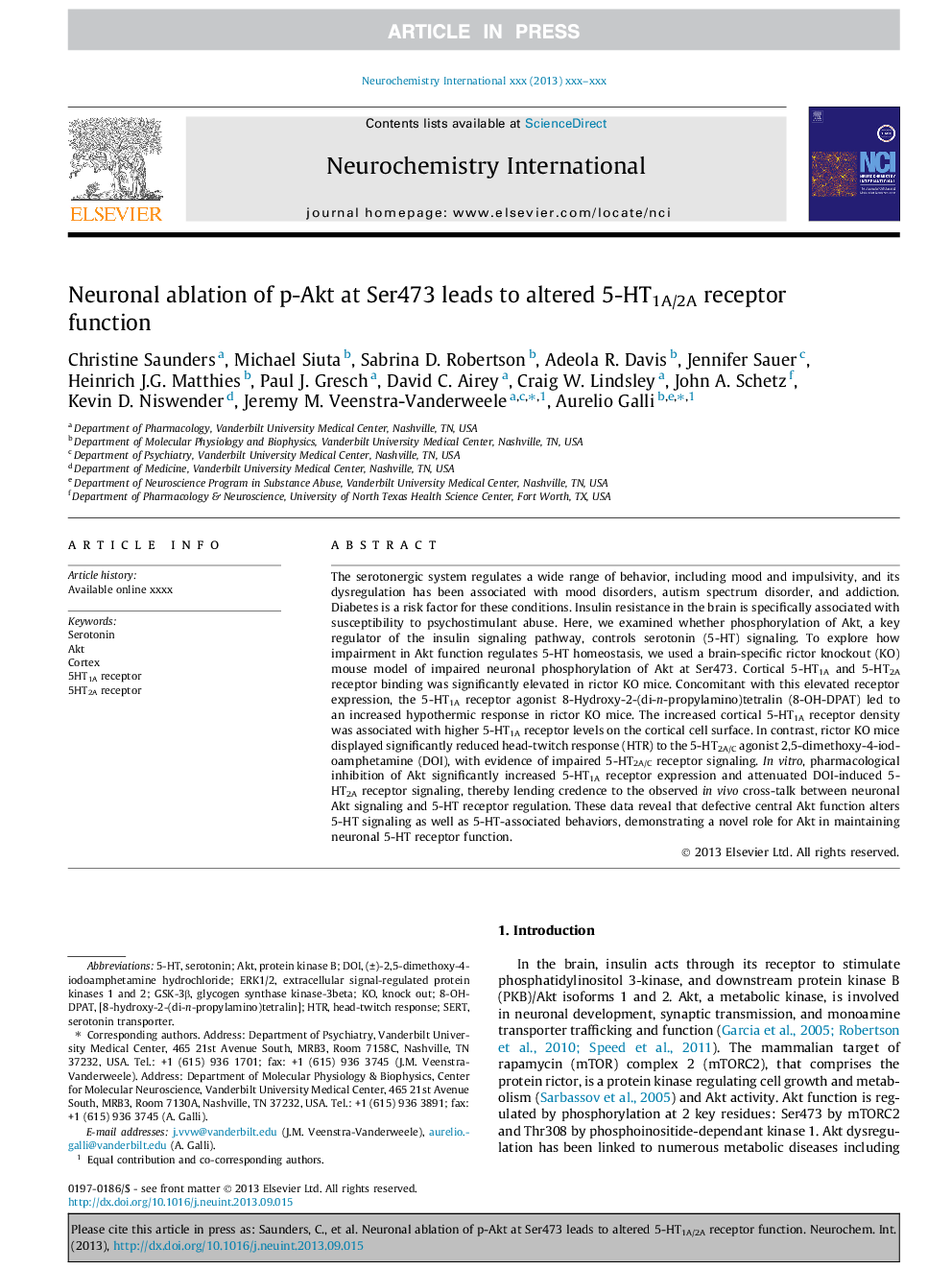| Article ID | Journal | Published Year | Pages | File Type |
|---|---|---|---|---|
| 8479235 | Neurochemistry International | 2014 | 9 Pages |
Abstract
The serotonergic system regulates a wide range of behavior, including mood and impulsivity, and its dysregulation has been associated with mood disorders, autism spectrum disorder, and addiction. Diabetes is a risk factor for these conditions. Insulin resistance in the brain is specifically associated with susceptibility to psychostimulant abuse. Here, we examined whether phosphorylation of Akt, a key regulator of the insulin signaling pathway, controls serotonin (5-HT) signaling. To explore how impairment in Akt function regulates 5-HT homeostasis, we used a brain-specific rictor knockout (KO) mouse model of impaired neuronal phosphorylation of Akt at Ser473. Cortical 5-HT1A and 5-HT2A receptor binding was significantly elevated in rictor KO mice. Concomitant with this elevated receptor expression, the 5-HT1A receptor agonist 8-Hydroxy-2-(di-n-propylamino)tetralin (8-OH-DPAT) led to an increased hypothermic response in rictor KO mice. The increased cortical 5-HT1A receptor density was associated with higher 5-HT1A receptor levels on the cortical cell surface. In contrast, rictor KO mice displayed significantly reduced head-twitch response (HTR) to the 5-HT2A/C agonist 2,5-dimethoxy-4-iodoamphetamine (DOI), with evidence of impaired 5-HT2A/C receptor signaling. In vitro, pharmacological inhibition of Akt significantly increased 5-HT1A receptor expression and attenuated DOI-induced 5-HT2A receptor signaling, thereby lending credence to the observed in vivo cross-talk between neuronal Akt signaling and 5-HT receptor regulation. These data reveal that defective central Akt function alters 5-HT signaling as well as 5-HT-associated behaviors, demonstrating a novel role for Akt in maintaining neuronal 5-HT receptor function.
Keywords
Related Topics
Life Sciences
Biochemistry, Genetics and Molecular Biology
Cell Biology
Authors
Christine Saunders, Michael Siuta, Sabrina D. Robertson, Adeola R. Davis, Jennifer Sauer, Heinrich J.G. Matthies, Paul J. Gresch, David C. Airey, Craig W. Lindsley, John A. Schetz, Kevin D. Niswender, Jeremy M. Veenstra-Vanderweele, Aurelio Galli,
